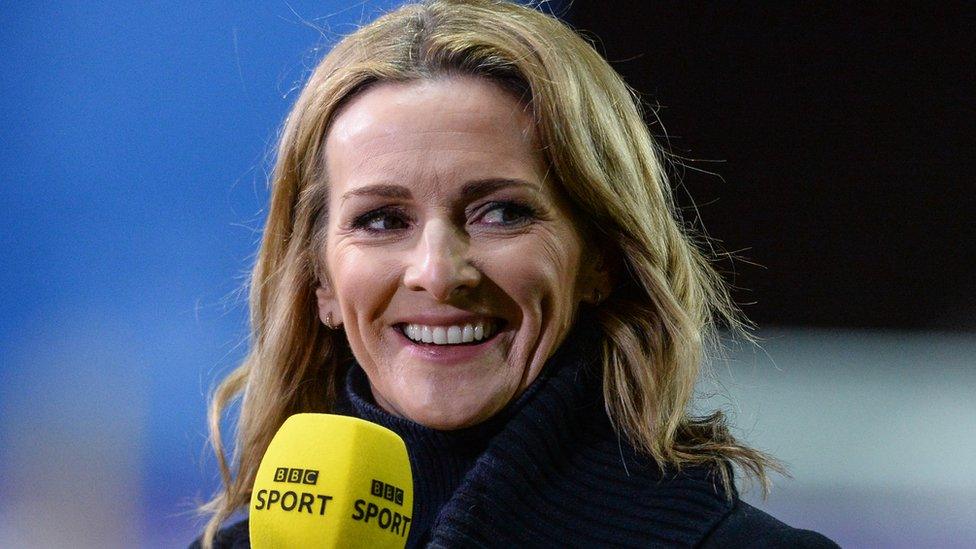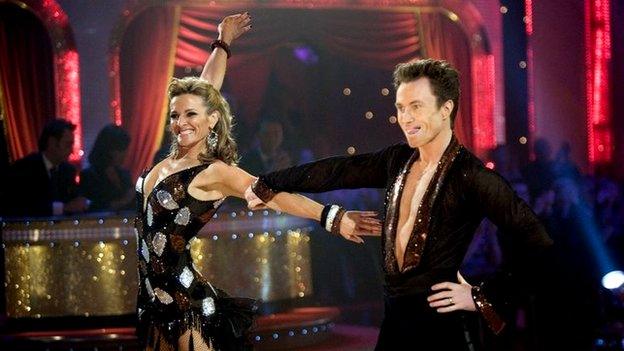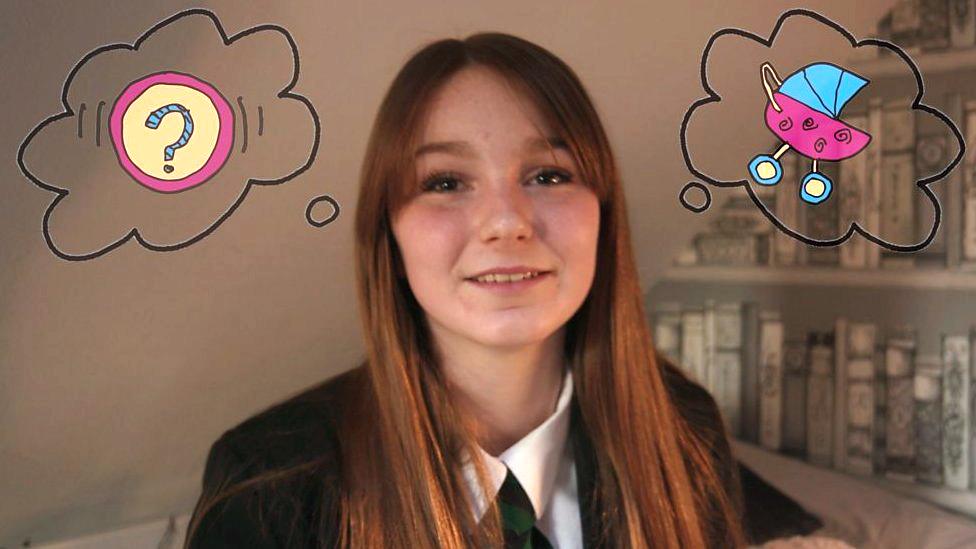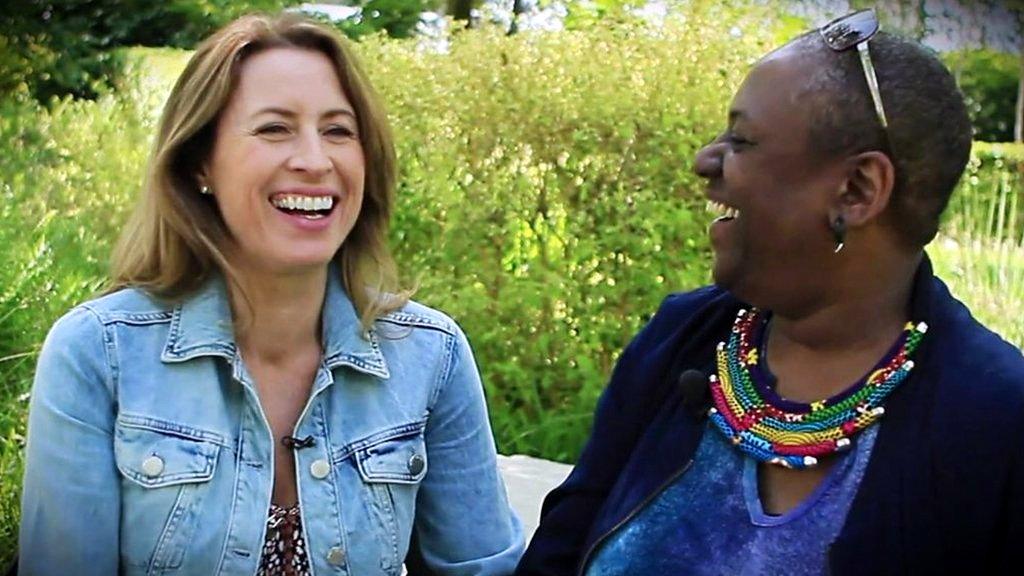Gabby Logan: 'Involve men in menopause discussion'
- Published

Logan is one of the UK's most high-profile sports broadcasters
TV presenter Gabby Logan has encouraged men to be included in the discussion around menopause so they have more of an "understanding" towards women.
The BBC Sport host, 47, told the Women's Health Going For Goal podcast she had been unprepared for the impact the menopause had on her.
She said: "Men work alongside women, men are married to women, and I think men also need to know what's going on because we need to have that empathy and understanding of what's happening to our partners, our friends."
Logan said "more people are talking about" the effects and stages of the menopause now.
Career anxiety
Discussing her own experience, she said she did not "understand fully" what was going on with her body, and worried about the impact it would have on her career.
Menopause: what are the symptoms and why does it happen?
"I on the inside didn't feel any different to the 32-year-old me," she said. "I just didn't want to stop work just because of being a certain age.
"Yes, I've got more lines and of course I'm not looking exactly the same as I was when I was 32... but I also felt like I'd got more experience, there's more I want to do and I'm better at my job, so all those things that are plus points for being a bit older."

Understanding the menopause
The menopause describes the age when women's periods stop and they can no longer become pregnant naturally.
It normally happens between 45 and 55, but can also be brought on by surgery to remove the ovaries or the womb. In the UK, the average age of menopause is 51.
It involves changes to hormones, specifically a reduction in oestrogen, which is key to the production of eggs during menstrual cycles.
The body can start to behave very differently and many women experience symptoms long before their periods actually stop - a phase known as the peri-menopause.
Symptoms of menopause can include hot flushes, night sweats, sleep problems, anxiety, low mood and a loss of interest in sex. Bladder problems and vaginal dryness are also common.
Learn more: What does the menopause do to the body?

Logan added that women can "suddenly disappear from boards or from being the CEO because they don't quite get there because of this period in their life that can cause confusion, physically and emotionally and mentally.
"So, for me, it's really important that women keep pushing through and get those top jobs... and it's not because of what happens in their menopause that they disappear."
'Growing conversation'
Logan also urged women to speak to their doctors for support, and said she had been given hormone replacement therapy to help with perimenopausal symptoms.
"I felt like, I'm not feeling the best version of me that I can feel right now, and I don't want to allow myself to slow for no reason," she said.
"So that's been about six months since I saw [my doctor] and I feel really good and I'm very lucky because I haven't had a lot of the more aggressive symptoms that you get with the menopause."
Sarah Graham, a freelance health journalist and founder of feminist health blog Hysterical Women, says inclusivity is key to ensuring the growing conversation around menopause empowers women.

Logan took part in the fifth series of Strictly Come Dancing in 2007
"It's been great to see conversations about the menopause emerging from the shadows in recent years," she says.
"Hopefully this will help future generations of women to feel prepared and understand the changes that occur around this time, as well as empowering them to seek help if any symptoms are having a significant impact on their lives.
"As Gabby says, it's so important that people of all genders are involved in this conversation - whether as doctors, employers, friends or partners.
"Too often I still hear stories of women's severe menopausal symptoms being dismissed by GPs or written off as 'normal' or 'natural' - as if women should just grit their teeth and get on with it instead of being given appropriate treatment and support. The more we all talk about this, the better."

Follow us on Facebook, external, or on Twitter @BBCNewsEnts, external. If you have a story suggestion email entertainment.news@bbc.co.uk, external.
Related topics
- Attribution
- Published26 July 2013

- Published6 March 2019

- Published16 May 2019
